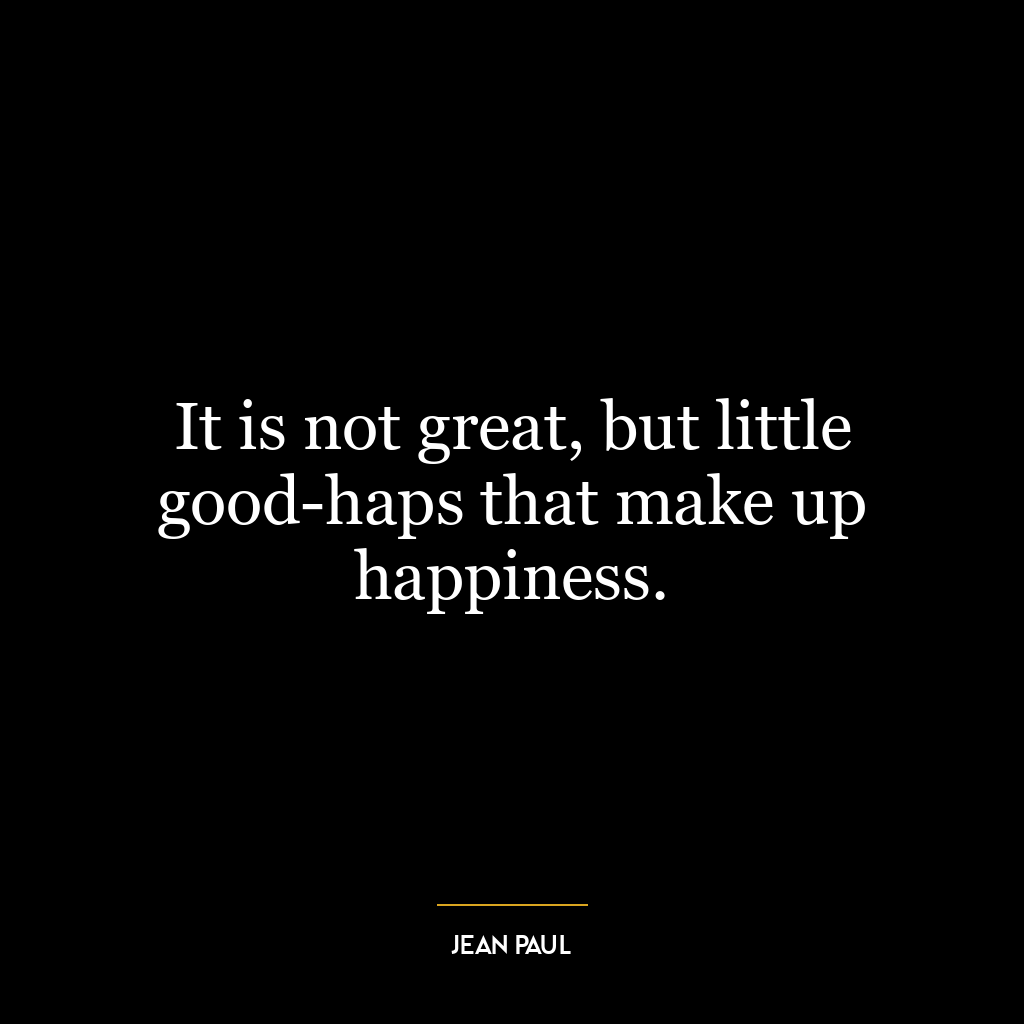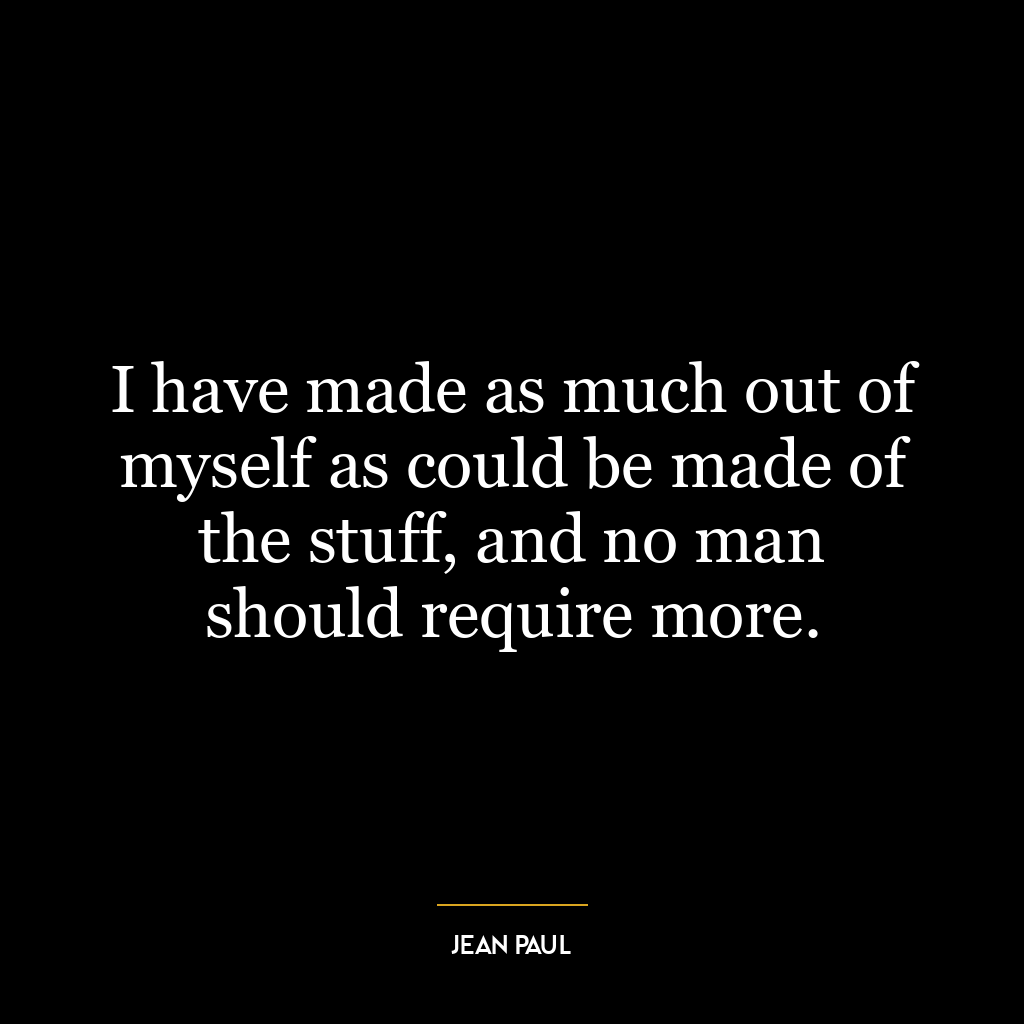This quote emphasizes the value of contentment and satisfaction in one’s life. It suggests that true wealth is not found in the accumulation of material possessions, but in the ability to appreciate and be satisfied with what one already has. This is the “greatest” form of riches because it is not dependent on external circumstances, but on one’s internal state of mind. It is the “most secure” form of riches because it cannot be taken away by changes in fortune or circumstance.
The idea of contentment being the greatest form of wealth is a perspective that challenges the common belief that success and happiness are found in constantly striving for more. It suggests that the pursuit of more can lead to a state of perpetual dissatisfaction, where one’s happiness is always just beyond the next achievement or acquisition.
In today’s world, this quote can serve as a reminder to resist the pressures of consumerism and the societal expectations to constantly strive for more. It can encourage us to practice gratitude for what we already have and to find joy and satisfaction in the present moment, rather than always looking to the future for happiness.
In terms of personal development, this quote can inspire us to cultivate an attitude of contentment and gratitude. This doesn’t mean that we should not strive for improvement or growth, but rather that we should not tie our happiness and self-worth to these pursuits. By learning to be content with what we have, we can reduce stress and anxiety, increase our happiness and satisfaction, and ultimately lead more fulfilling lives.








